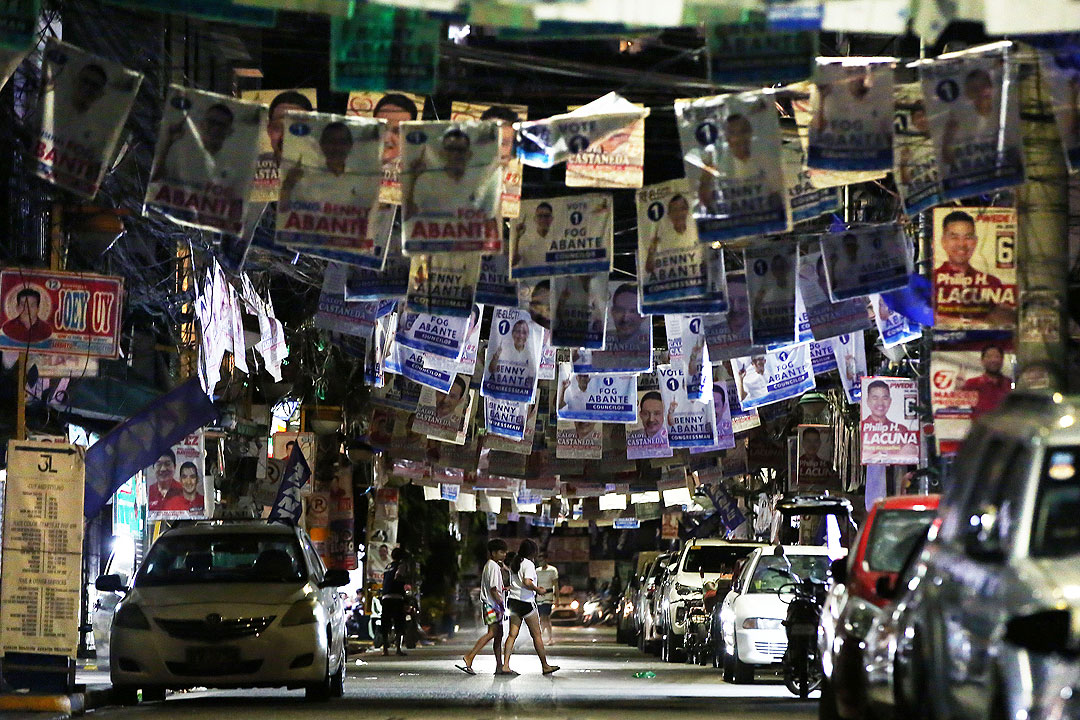
Yellow Pad
By Pia Rodrigo

The dust has started to settle after the 2022 national elections. Many have offered their post-mortems after an intense and divisive campaign. Now, the question is: How can we move forward?
This is a tough question to answer for those who rooted so hard for Vice-President Leni Robredo. The pink movement was the first presidential campaign I was involved and personally invested in. The odds were stacked against us, but VP Leni breathed new life into electoral politics and made so many believe in the power of social movements and the goodness of Filipinos.
But ultimately, we fell short. Ferdinand Marcos, Jr. is now president-elect after a landslide win. When I find myself anxious over what’s to come, I feel the need to ask the much wiser people around me for some clarity on our way forward. And one answer I always get is: We need to learn to accept the fact that an overwhelming majority of Filipinos chose Ferdinand Marcos, Jr. as their president.
People deserve space to grieve such a huge loss; I myself don’t think I’ve fully processed the election results. But there must come a point wherein we move forward, face reality, and accept the loss; especially so we can figure out how we can win in the future.
Throughout the campaign, in several ways, we failed to do the difficult task of listening. We were at times so far detached from reality. At times, we got fixated on silver linings rather than acknowledging and coming to grips with the harsh truths staring us in the face. Many of us, myself included, were clueless about our own shortcomings. After all, one’s echo chamber is such a comfortable place to be.
Being right, or being surrounded by people who make us feel like we’re always right, gives us a false impression of being invincible. It’s a very satisfying experience.
It was easier to go to rallies and pretend that the energized crowd was representative of the entire Philippines, rather than acknowledging the homogeneity of these rallies. It was also easier to dismiss survey results and attack their reliability, instead of trying to explain the strong support for Marcos. It was easier to dismiss people’s agency and chalk their Marcos vote up to a myriad of different factors not in their control. It was easier to continue engaging the same kakampink vendors near our house rather than traveling far away to the communities filled with people who were more likely to heckle us for supporting VP Leni.
The campaign was a classic example of the strength of confirmation bias. We believe what we want to believe, no matter what the data and conditions say.
When huge crowds of people started coming out to support VP Leni in campaign rallies, I was convinced that the tide was turning. “Maybe the surveys don’t capture the sentiments on the ground,” I told myself, month after month. But months into the campaign, and even up to election day, people were discrediting election surveys. And yet, somehow, if the survey aligns with our interests, we suddenly believe in them.
Another hanging question: Is VP Leni’s mantra, “radical love,” still worth pursuing? Many argue that it brought the campaign down, and for a while, I gave up on radical love, too. I couldn’t even find it in me to interact with strangers in the days following May 9; I felt like I lost a lot of my empathy upon the release of election results. But I know that this isn’t what VP Leni called us to do, and if anything, we need more empathy and inclusivity, not less of it.
I still don’t believe in alienating people or shaming them for holding different views. In fact, it will only line up perfectly with the narrative of the “Uniteam.” It gives them more reason to say that they are the face of class and unity, the opposite of “toxicity,” for refusing to “stoop down to the level” of the opposition.
“By the time we’ve humiliated someone, they’re not going to learn anything,” said French philosopher Alain de Botton in an episode of the On Being podcast in 2017.
He defined love as “a capacity to enter imaginatively into the minds of people with whom you don’t immediately agree, and to look for the more charitable explanations for behavior which doesn’t appeal to you and which could seem plain wrong; not just to chuck them immediately in prison or to hold them up in front of a law court.”
As always, we follow VP Leni. And if her speech in a Quezon City gathering after returning from the United States is any indication, she is still optimistic about the future of the movement that started with the 2022 pink campaign. Beyond her vice-presidential term, the possibilities are endless.
Now, more than ever, we need an engaged citizenry to do the day-to-day reforms and sustain the momentum brought about by the campaign. We’ll need to let go of all self-righteousness and pursue a change in strategy, but we’re not starting from scratch. Mananaig ang kabutihan. Walang imposible. (Goodness will prevail. Nothing is impossible.)
The Author belongs to Generation Z and works for Action for Economic Reforms (AER). AER describes the author as one who has imbibed from her parents and her school the value of “giving and not counting the cost, fighting and not heeding the wounds.”